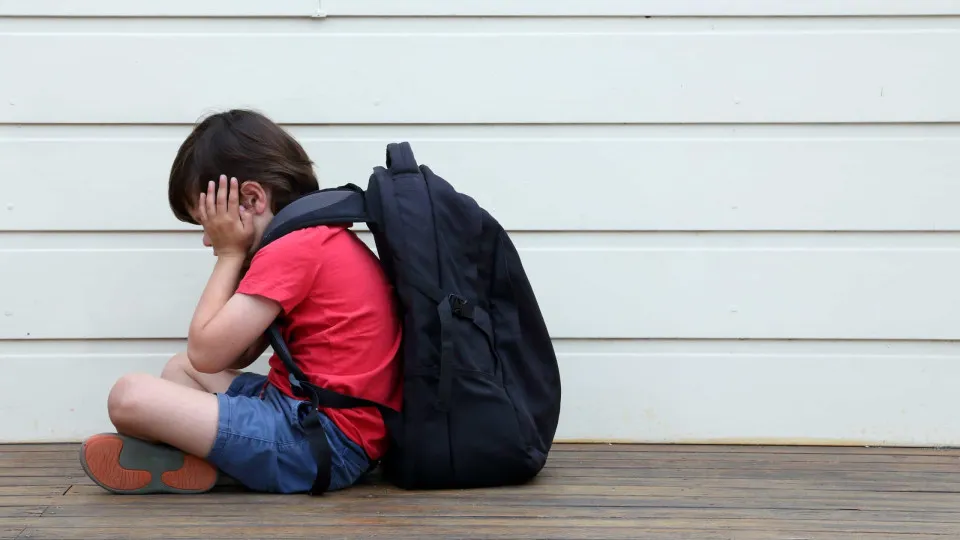
The Directorate-General of Health (DGS) issued a warning on Monday in light of World Anti-Bullying Day, observed on October 20. On social media, the entity emphasized the need to protect children and young people from bullying “in schools, communities, or online interactions.”
“On World Anti-Bullying Day and always advise youngsters to use the SOS 3R Kit – Recognize | Refuse | Report,” the statement reads.
In the social media post, DGS noted the availability of support in this domain through the National Health Service (SNS). It mentioned that in seeking assistance, one should contact Health Teams, Child and Youth Risk Support Centers, or Child and Adolescent Mental Health Teams at health centers or hospitals.
Below is the publication, where some signs are highlighted that might indicate someone is suffering from bullying.
Nas escolas, comunidades ou em interações online, proteja as crianças e jovens do 𝗯𝘂𝗹𝗹𝘆𝗶𝗻𝗴.
No Dia Mundial de Combate ao Bullying e sempre aconselhe os mais novos a usar o 𝗞𝗶𝘁 𝗦𝗢𝗦 𝟯𝗥 – 𝗥𝗲𝗰𝗼𝗻𝗵𝗲𝗰𝗲 | 𝗥𝗲𝗰𝘂𝘀𝗮 | 𝗥𝗲𝗽𝗼𝗿𝘁𝗮.
𝗣𝗮𝗿𝘁𝗶𝗹𝗵𝗲. pic.twitter.com/0VIfTfYJf4
— DGS (@DGSaude) October 20, 2025
The SNS website also provides information on bullying, covering typical forms of aggression, information on cyberbullying, and guidance for parents whose children are victims of such aggression. The complete information can be consulted here, with some details below:
Why Are Some Children Bullies?
The SNS states that several factors may influence a child to be aggressive, including:
- The need to assert dominance and power over others;
- Low self-esteem;
- Having been bullied by other children or experiencing adult aggression (and mimicking such behaviors);
- A need for attention;
- The association of aggressiveness with popularity;
- A lack of sensitivity and understanding of others’ pain and feelings.
“However, these reasons do not justify allowing a child to behave aggressively toward another. It is important to identify the root of the problem and provide support to prevent the continuation of violence,” it reads.
What to Do if Your Child or a Known Child is Aggressive to Peers:
The SNS warns that adults should intervene to “prevent the continuation and escalation of violence,” emphasizing the importance of the child or youth who “aggresses being aware of their actions and their negative impacts and willing to stop.”
“Thus, it should be emphasized that bullying is unacceptable and explain the negative impacts it has both on others and oneself. Bullies are children and young people with a higher likelihood of antisocial and criminal behavior as adults (delinquency, dating violence, domestic violence),” it further states.
The Recommended Approach by the SNS:
- Avoid downplaying the problem;
- Adopt an active stance to address the problem;
- Clearly show that violence is not a way to act and is intolerable;
- Talk openly and identify the motives that trigger such aggressive behaviors in the child;
- Help develop interpersonal communication skills and the ability to handle various situations;
- Review one’s own behaviors and be an example;
- Encourage apologies and explain that this is an act of humility and dignity, not humiliation;
- Help them empathize with others;
- Explain that there are negative consequences for actions, which exist for safety in society (such as disciplinary processes, criminal proceedings);
- Avoid physical punishments, as they only reinforce violence as a means of interaction with others;
- Spend more quality time with your child, monitor activities and company;
- Establish clear rules and ensure compliance, reinforcing and praising appropriate behavior;
- Seek support from a psychologist and/or mental health professional.




